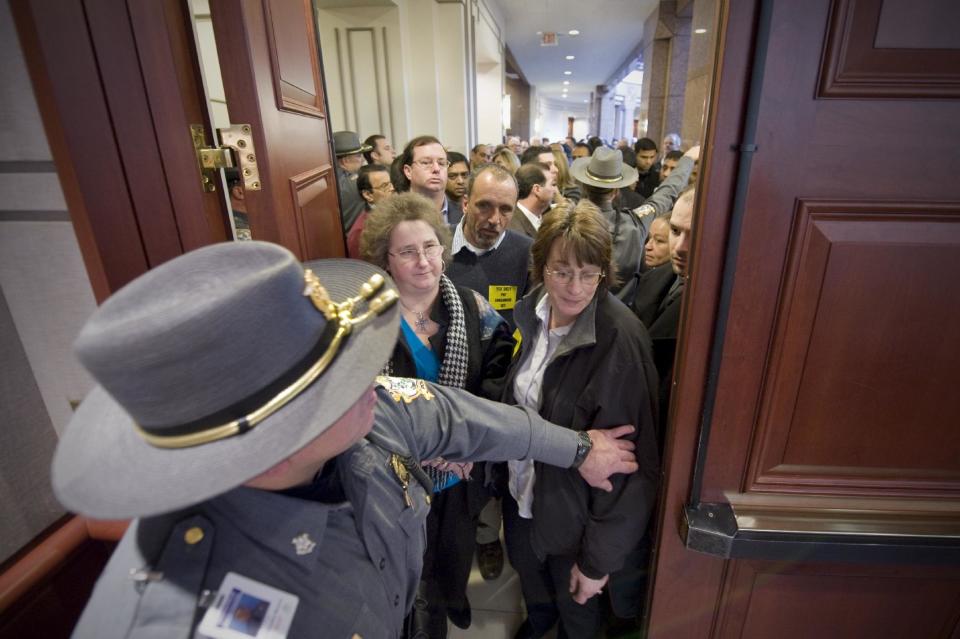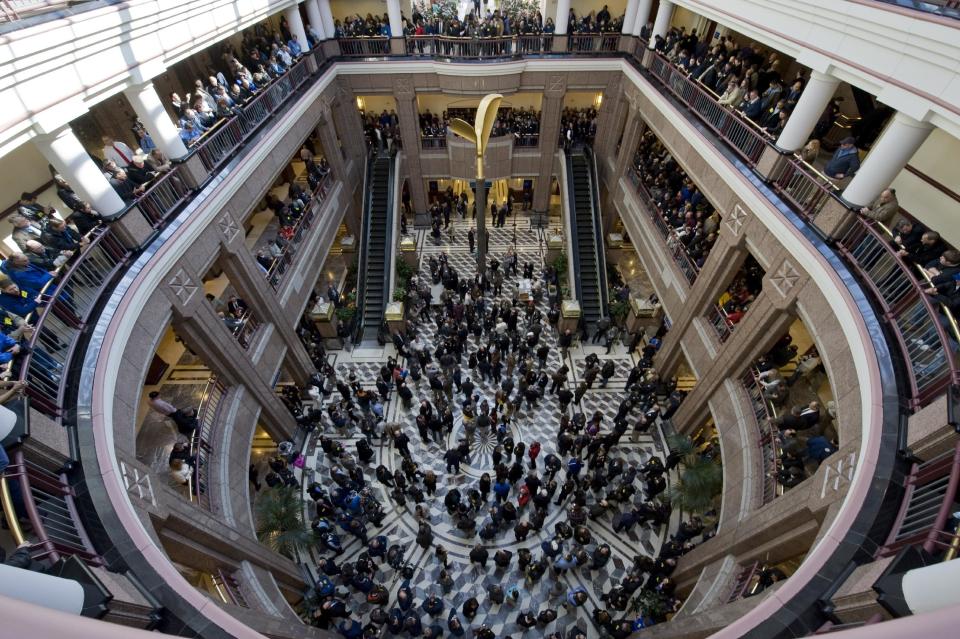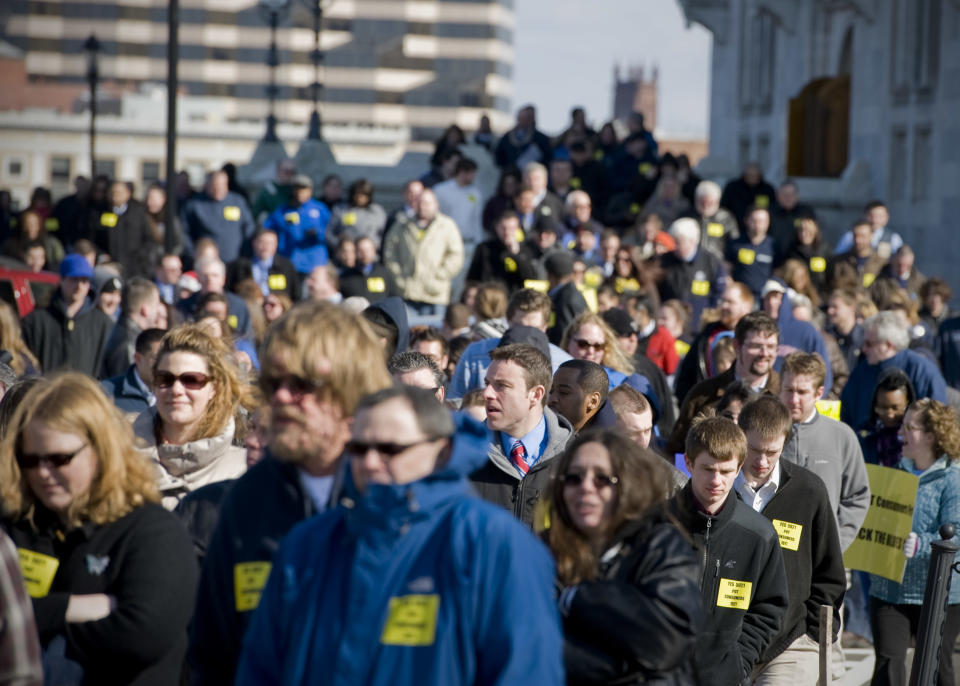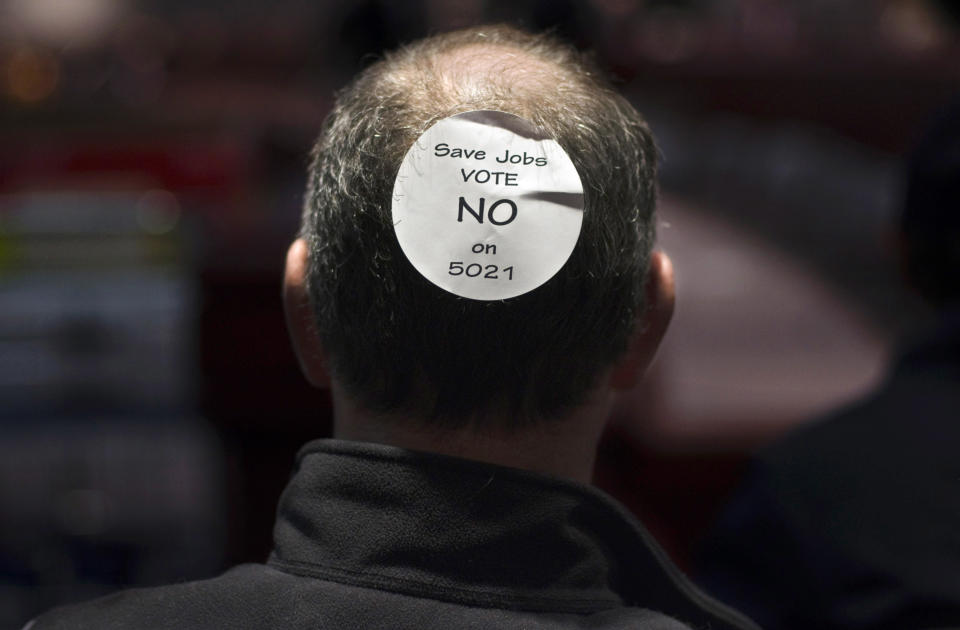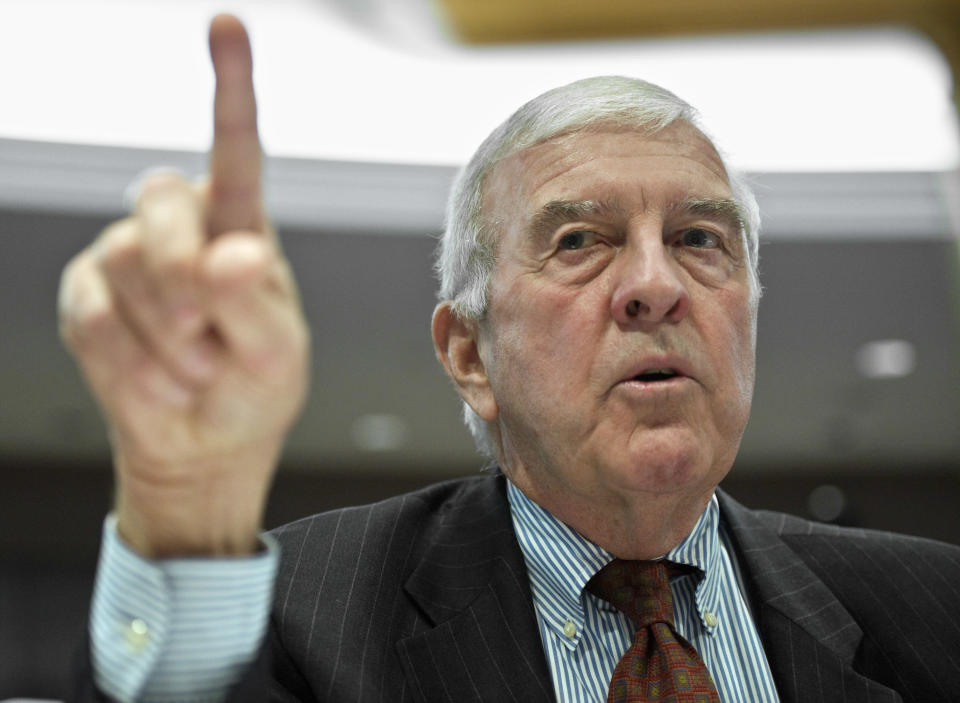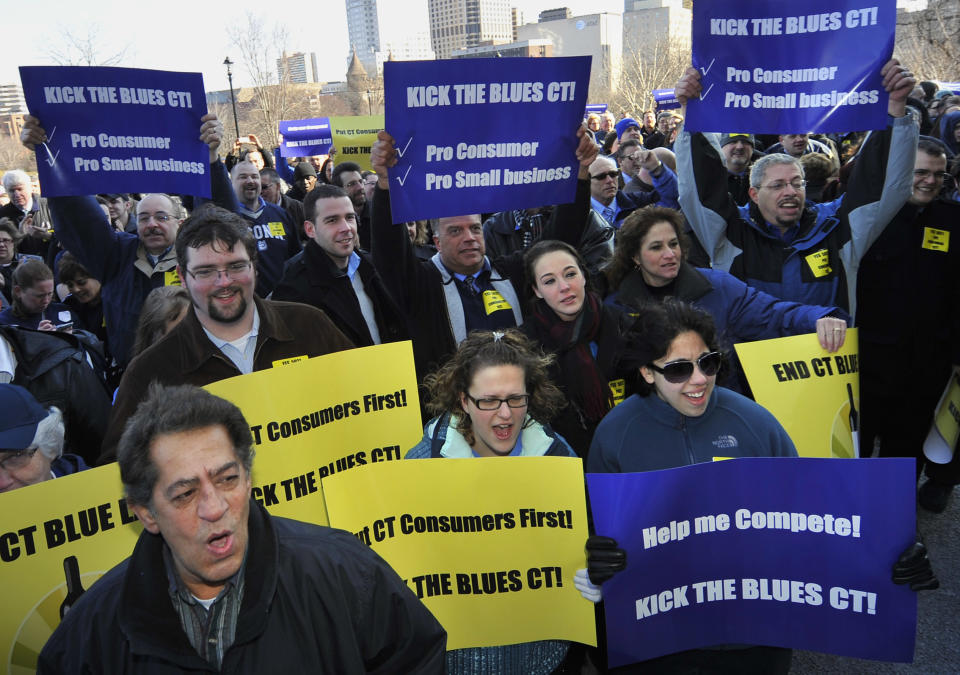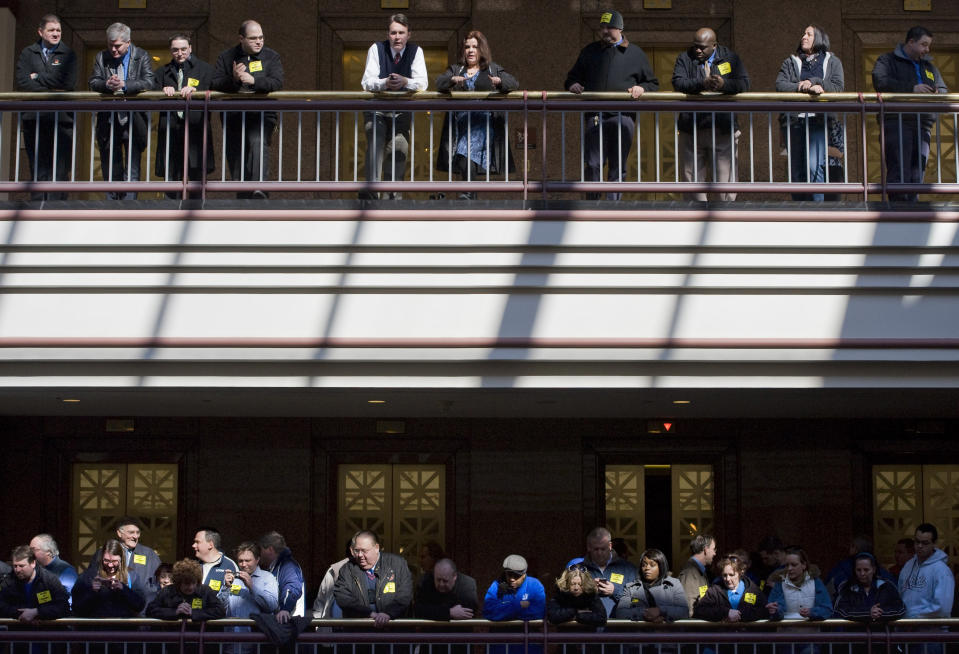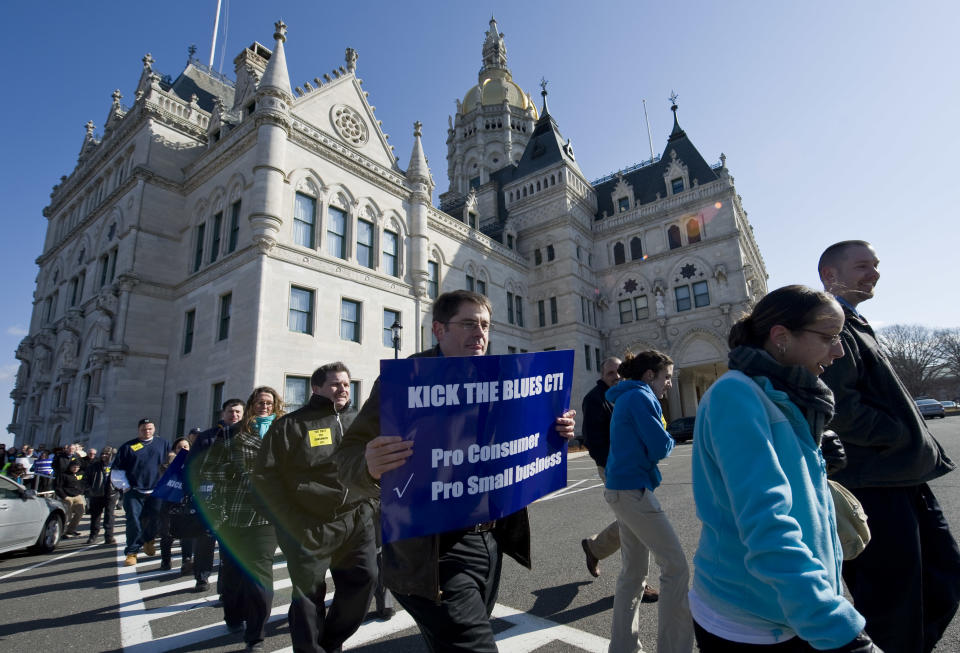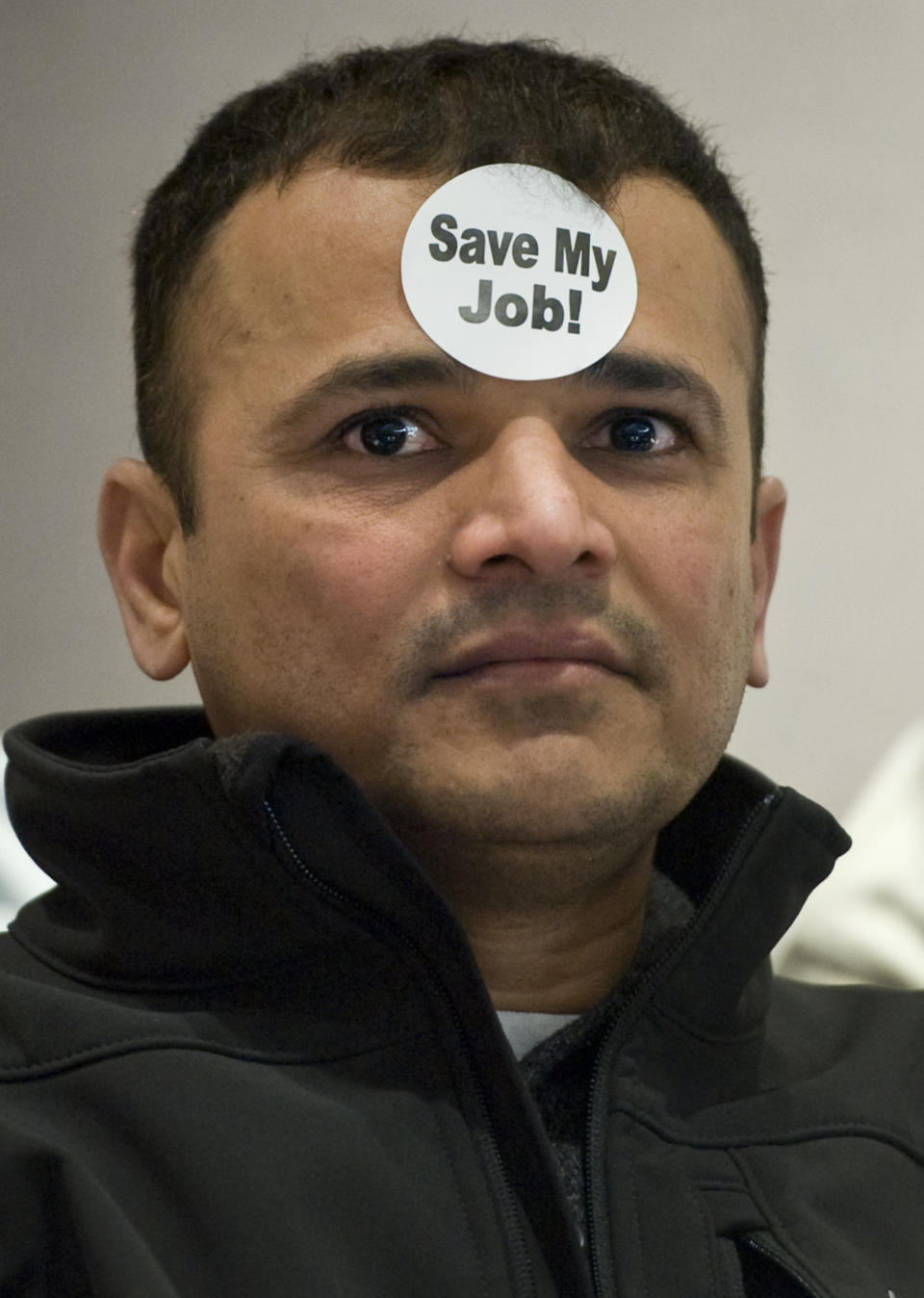Conn. moves closer to Sunday alcohol sales
HARTFORD, Conn. (AP) — Connecticut moved closer Tuesday to allowing retail alcohol sales on Sundays, a step that would bring it in line with neighboring states by ending a ban that dates to Prohibition.
The primary obstacle to the proposal by Democratic Gov. Dannel P. Malloy vanished with an association of package store owners announcing it would drop its longstanding opposition. The group had argued Sunday sales would drive many mom-and-pop stores out of business, but its president said it is relenting to focus on other aspects of the governor's proposed overhaul of liquor laws, such as changes to price structures and allowing certain convenience stores to sell beer.
Connecticut would be the 49th state to allow Sunday alcohol sales, with Indiana as the only other remaining holdout. Connecticut would be the 38th state to allow retail sales of distilled spirits on Sundays. An industry group says the change would help state businesses keep pace with Massachusetts and Rhode Island, where retailers say the advent of Sunday sales within the last decade has helped to boost sales.
Jay Hibbard, vice president of government relations for the Distilled Spirits Council of the U.S., predicted revenues for Connecticut would climb by $7.5 million to $8 million annually. He said that is consistent with what has taken place in all 15 states that have adopted Sunday sales since 2002.
"The experience of these states shows without doubt is that Sunday sales does not spread current sales over more days, nor has any state seen a wholesale change in the number of package stores and liquor stores in their state. There's simply no reason that Connecticut would be any different," he said.
For years, many package store owners in Connecticut have said that allowing retail alcohol sales on Sundays would put many small stores out of businesses because they would feel the need to stay open seven days a week and would have to hire staff to cover that day or work on their only day off.
Carroll Hughes, a lobbyist for the Connecticut Package Stores Association, last year told state lawmakers it would cost the average package store owner at least $14,000 a year to open on Sundays and would drive hundreds out of business. But Hughes told members of the General Assembly's General Law Committee during a public hearing Tuesday that the group would no longer oppose the change. The hearing attracted about 800 people, including many liquor store owners,
"I've suggested we endorse (Sunday sales), which seems to be a driving force here on the train to accommodate certain people, mostly in the food stores that already are open and think they're going to do a huge business," said Hughes, who suggested store hours be limited on Sundays to 11 a.m. to 5 p.m., or something similar.
Alan Wilensky, owner of Max's Package Store in East Lyme and president of the Connecticut Package Stores Association, acknowledged he has mixed feelings about allowing retail sales on Sundays.
"If you're giving me the option of cutting off both of my arms or my head, take my arms," he told state lawmakers.
Robert Selby, a vice president with the Massachusetts Package Stores Association and the owner of three stores, said he saw a minimal jump in business after the commonwealth agreed in 2003 to allow off-premise alcohol sales on Sundays.
Selby's stores are in Peabody, Danvers and Walden, all in Massachusetts. He said he had faced competition for years with nearby New Hampshire, where alcohol could be purchased on Sundays.
"I think we picked a little bit of business back up," said Selby, adding how changes to taxes and other issues also helped.
But Selby said some of that revenue has been offset by the time-and-a-half rate he pays employees on Sundays, as required by the Massachusetts law. It also forbids store owners from requiring an employee to work on Sundays. He said the stores also have to cover the additional cost of electricity and heat for those Sundays.
"If it wasn't time-and-a-half, it would probably be a big win," he said.
Sunday sales have been profitable for Ocean State Liquors in Westerly, R.I. Gina Slafkovsky, a sales clerk at the store, said being allowed to remain open on Sundays has significantly boosted business at the store, which is near the beach.
"It is a big impact, especially in the summer time," Slafkovsky said. "We'll have cars waiting outside to get in the store an hour before we open at noon on Sundays."
She said the store gets a number of customers from Connecticut on Sundays because it is so close to the state line. But she said she's not concerned about losing out if the law changes in Connecticut.
"Our prices are good, and we've got the locals," Slafkovsky said.
State Rep. Kathleen Tallarita, D-Enfield, who has been pushing for Sunday sales legislation for three years, said she feels more confident that 2012 will be finally be the year Connecticut will allow retail alcohol sales on Sunday.
"I think the huge difference is the governor. Last year the governor was willing to sign a bill, but didn't get behind it. This year, he was out in front of it, and included Sunday sales in what he personally thinks needs to be changed within the consumer protection laws. I think that's a huge difference," Tallarita said.
While Sunday sales have been promoted over the years as a way to generate money to help balance the state budget, Malloy has pitched the issue as one of providing consumers with convenience and ultimately lower prices, especially when coupled with other changes he is proposing. He also argues that his suggested overhaul will discourage Connecticut residents from crossing the border into Massachusetts, New York and Rhode Island to purchase their alcohol, ultimately helping Connecticut retailers.
"What we're trying to do is create a system that will ultimately lead to lower prices," Malloy said, "which will ultimately lead to our recovery of $570 million worth of sales, will ultimately lead to increased jobs and which will ultimately, quite frankly, lead to the state's recovery of its fair share of revenue."
__
Associated Press Writers Michael Melia and Shannon Young contributed to this report.

